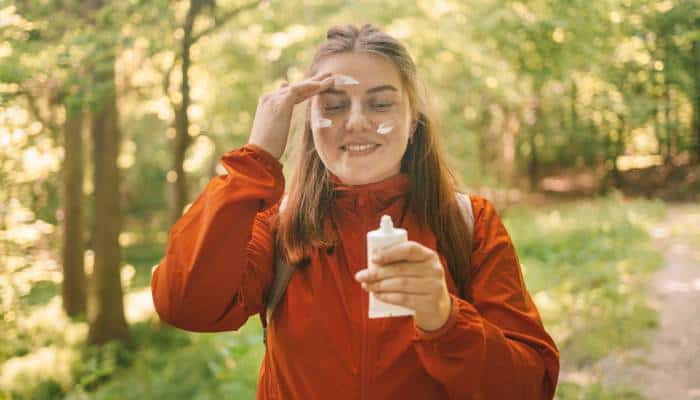Sunlight and our exposure to it influences both our physical and mental well-being. However, finding the right balance of sun exposure for your health and avoiding the harm that can come with it requires careful consideration of timing and protective measures. Here are some tips everyone should know about how to enjoy your time in the sun without damaging your skin health.
Benefits of Sun Exposure
Your body produces vitamin D when ultraviolet B rays from sunlight interact with your skin. This essential nutrient supports bone health, immune function, and calcium absorption. Most people can synthesize adequate vitamin D with just 10-15 minutes of direct sunlight exposure several times per week.
Sunlight exposure triggers the release of serotonin, a neurotransmitter that helps regulate mood and promotes feelings of well-being. This natural process explains why many people may feel more sluggish during darker months.
Regular sun exposure helps regulate your circadian rhythm, leading to better sleep patterns and increased energy levels. Sunlight also stimulates the production of endorphins, which can reduce stress and create a natural sense of happiness.
Risks of Excessive Sun Exposure
Prolonged exposure to ultraviolet radiation accelerates skin aging by breaking down collagen and elastin fibers. This process leads to wrinkles, age spots, and leathery skin texture. The damage accumulates over time, making consistent protection essential from an early age.
Excessive sun exposure significantly increases your risk of developing melanoma and other forms of skin cancer. Ultraviolet radiation damages DNA in skin cells, potentially triggering cancerous changes that can become serious if you don’t notice or treat them.
Striking a Balance of Safe Sun Exposure and Protection
Plan outdoor activities during early morning or late afternoon hours when UV radiation levels are naturally lower. Limit direct sun exposure to 15-30 minutes daily, depending on your skin type and geographic location. Create more shaded spaces in common areas you spend time outdoors such as your backyard.
Apply broad-spectrum sunscreen with at least SPF 30 to all exposed skin, even on cloudy days. Reapply every two hours and immediately after swimming or sweating. Choose water-resistant formulas for outdoor activities and sports.
Incorporate vitamin D-rich foods like fatty fish, fortified dairy products, and egg yolks into your diet. Consider taking vitamin D supplements during winter months or if you have limited sun exposure. Consume antioxidant-rich foods such as berries, leafy greens, and nuts to support skin health from within.
Enjoy the Sun Safely
Balancing sun exposure allows you to maintain optimal skin and mental health while minimizing risks. Monitor your skin regularly for changes and consult a dermatologist if you notice new or evolving spots. By combining brief, strategic sun exposure with consistent protective measures, you can support both your mental well-being and long-term skin health.







